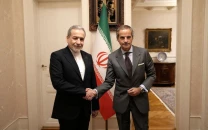In the words of General Bikram Singh
It is unfortunate that both India & Pakistan have large constituencies that insist on war at every opportunity.

The writer is a consulting editor with The Statesman and writes widely for several newspapers in India
It was a good performance and assuaged the sentiments of those, such as the opposition Bharatiya Janata Party and sections of the strategic community, with the ‘no-nonsense’ approach of the army chief. It also gave television channels several sound bites to chew with the military overtones disguising the fact that the general was in line with the political decision to de-escalate tensions along the LoC. General Singh spoke a military language promising swift retribution as and when required. The rhetoric was impressive, but the points that he made need to be noted without the bombast. Without saying all of the following directly, he was clear that one, the ceasefire will hold unless there is fresh provocation; two, the retaliation, if any, will be at the level of the corps commander operating in the area, as part of a ‘tactical’ response to a ‘tactical’ provocation; three, LoC skirmishes will be dealt with at the military level without necessarily involving larger decisions by the political top brass; four, there was concern about the training and response of the Indian patrol unit that had been attacked and action would be taken after the ‘fire fighting’ was over, along with “corrective measures”.
The press conference was held even as the flag meeting of brigadiers of both India and Pakistan was being held to talk tough, but presumably to also take measures to diffuse the tension and restore calm along the LoC. The Indian government has, through it all, exercised considerable restraint despite the pressure, refusing to be nudged into postures that would call off the ceasefire that has largely held along the LoC since 2003 or stop the talks between the two countries. There has been recognition of the fact that loud talk by the political leadership can sour relations at a time when both India and Pakistan need to be in touch on Afghanistan and that it was thus best to leave it to the army to deal with the issue at its level. General Singh has done the needful even as measures are being undertaken to stop the ceasefire violations and ensure that peace holds.
There has, thus, been a visible maturing of India-Pakistan relations after long and torturous decades. Both are dealing with the sensitivities on their respective sides, even as they move to patch up the torn ceasefire and use the military communication lines to ensure that such grievous violations do not occur again for either side.
The dialogue table is, perhaps, the most potent weapon between nations and, particularly, hostile nations like India and Pakistan. It can replace the might of the artillery if used with purpose and strategic planning, enabling governments to achieve their ends without destroying countries and peoples. It is unfortunate that both India and Pakistan have large constituencies that insist on war each and every time the opportunity offers itself, but when asked what military action will achieve, the warmongers fall silent. They have no answer beyond ‘they must be taught a lesson’.
Both countries need to put away the hatchet of sentiment as this has become a burden over the years. The governments must rise above public pressures, recognise each other as sovereign states, and appreciate the need to do business with each other for their own selfish interests and put together and respect the existing, as well as new, mechanisms to build bridges and ensure peace.
Published in The Express Tribune, January 16th, 2013.



















COMMENTS
Comments are moderated and generally will be posted if they are on-topic and not abusive.
For more information, please see our Comments FAQ